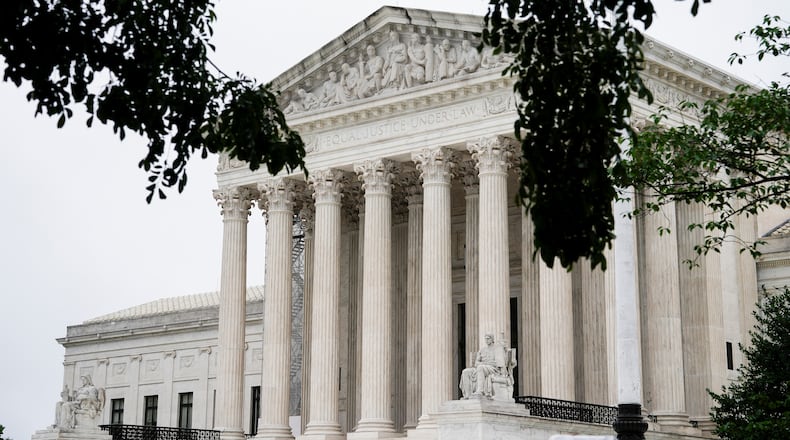The dust is still settling from last week’s U.S. Supreme Court ruling that businesses in “expressive” sectors — such as web designers and artists — can deny services to others under the First Amendment.
The 6-3 decision, announced the last day of Pride Month, found in favor of an evangelical Colorado web designer who wanted the right to refuse services for same-sex marriages. What that ruling means for Georgia isn’t fully clear.
Federal law passed during the Civil Rights era prohibits discrimination in public accommodations, gas stations, theaters and restaurants. But many other services are covered only if there is a state law, like that in Colorado and about 20 other states — and now the Supreme Court has opened up an exception to those laws.
Georgia does not have that kind of broad law forbidding discrimination. On the other hand, Republicans have come close several times to adopting “religious liberty” laws that could have allowed private business owners permission to refuse service to gay couples.
Now, the Supreme Court has provided that — at least if there’s speech or expression involved.
Legal analysts said the decision’s boundaries are still blurry and the impact unpredictable.
The definition of speech cannot be extended to say, making sandwiches, but it is still a fuzzy notion, said Anthony Michael Kreis, professor of law at Georgia State University.
“There is a lot of room for mischief,” he said. “Something like weddings, that’s where it could get ugly.”
If a business is deemed “expressive,” the court’s reasoning would allow it to reject clients for any reason — whether a matter of race, sexual identity, religion or politics, Kreis said. “It is very open-ended.”
Yet many people are going to seek out services from businesses they are comfortable with, so a self-selection will mean that few people end up being rejected, he said.
“I am really concerned about that kind of stuff because I think it’s unhealthy and damaging,” Kreis said. “But I’m not sure it will mean any kind of change on the ground day to day.”
The court’s decision was narrow in some ways, protecting only services that involved speech or expression. But because it was based on the First Amendment, when there’s speech or expression, it permits a business to reject virtually any customer.
That could undo decades of Supreme Court precedent that has worked to open accommodations to all Americans.
Reactions in Georgia were predictably split.
The decision was decried “as radical and reckless” by Jeff Graham of Georgia Equality, an LGBTQ advocacy group. But it won praise as protection of “the conscience of a business owner” from Georgia Republican Party Chair Josh McKoon, who as a state senator was a lead sponsor of the “religious liberty” proposal.
McKoon has long said the measure wasn’t designed as a backlash to LGBTQ rights, but instead was a response to a “series of government actions suppressing free exercise in Georgia.” It was sparked in part by what he said were fears that schoolteachers could face legal issues for offering Merry Christmas greetings.
‘I am going to be louder’
Last week’s ruling rattled some metro Atlanta business owners whose clients include gays and lesbians, sparking worries about a larger trend away from protecting minority communities.
Companies that appeal to lesbian and gay clients, for instance, are not likely to retreat, said Matt Mitchell, owner of Mitchell Event Planning, which orchestrates high-end, personalized weddings. Mitchell’s website shows the diversity of wedded couples across the nation, including straight, same-sex and interracial couples.
“I think I am going to be louder,” he said. “People are looking for help anyway they can to find someone who aligns with their values.”
That business conscience may now apply to gay and lesbian-owned businesses who can also refuse on free speech grounds to take work if it means expressions they find offensive.
But the Court’s decision seems more about intolerance, said Carlton Brown, president of 29-year-old Occasional Occasions, an upscale catering company.
“I wouldn’t want a Nazi asking me to cater their party, I get that,” he said. “But this just really saddens me. It’s as if you are opening up the door to a lot of free hatred.”
Occasional Occasions’ website now is mostly a celebration of food choices and packages available for corporate events, graduations, weddings and home entertaining. But the court’s decision has convinced him to be more assertive about social issues, Brown said.
“I think it will change our business,” he said. “This decision gives us the fuel to be more intentional in letting our customers know that we are very supportive. We want to let people know who we are.”
-Staff writer Greg Bluestein contributed to this story.
About the Author
Keep Reading
The Latest
Featured



